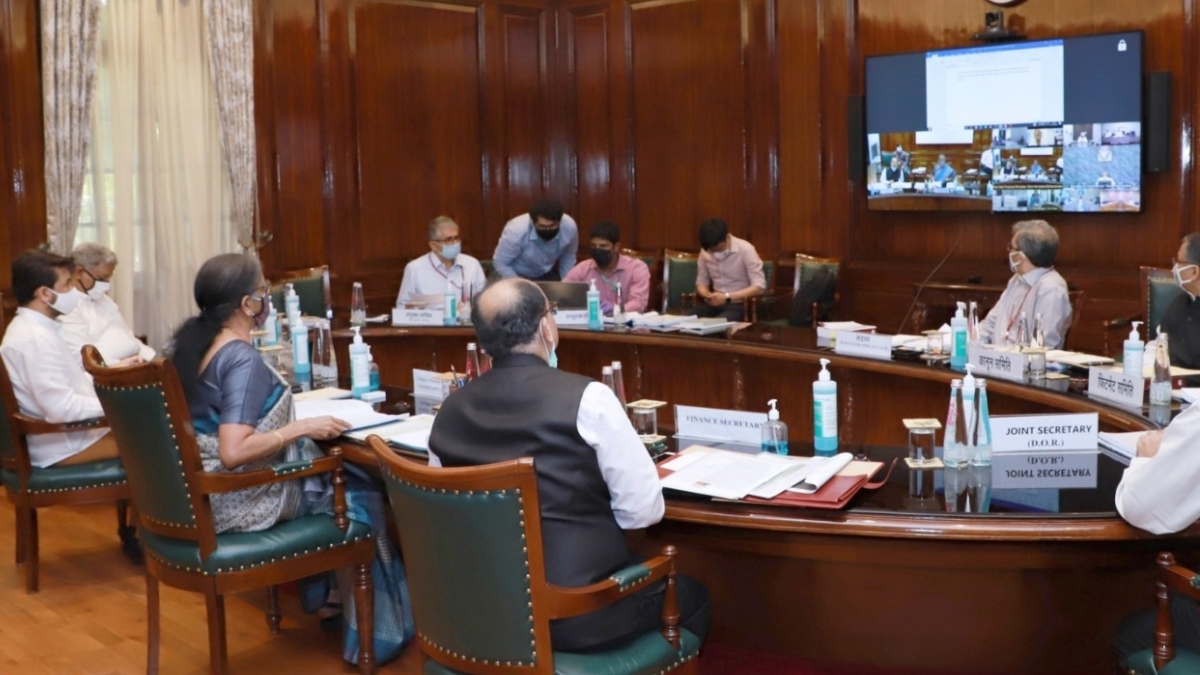
At the end of the 42nd GST Council meeting, held on 5th October, the meeting ended with the Ministry of Finance providing specific guidelines and recommendations on future GST filling processes and various reliefs made for small taxpayers. As the Council could not conclude the Compensation Cess debate, the next meeting was scheduled for 12th October to reach a consensus.
A brief update of the recommendations made in the 42nd GST Council Meeting:
1) Compensation Cess
- Levy of Compensation Cess to be extended beyond the transition period of five years i.e., beyond June 2022, for such period as may be required to meet the revenue gap. Further details to be worked out.
- Centre is releasing compensation of ₹ 20,000 crores to States today towards loss of revenue during 2020-21 and an amount of about ₹ 25,000 crores towards IGST of 2017- 18 by next week.
2) Enhancement in features of return filing:
- The approved framework aims to simplify return filing and further reduce the taxpayer’s compliance burden in this regard significantly, such that the timely furnishing of details of outward supplies (GSTR-1) by a taxpayer and his suppliers would –
- Allow him to view the ITC available in his electronic credit ledger from all sources i.e., domestic supplies, imports, and payments on reverse charge, etc. before the due date for payment of tax, and
- Enable the system to auto-populate return (GSTR3B) through the data filed by the taxpayer and all his suppliers. 42nd GST Council Meeting Update In other words, the timely filing of the GSTR-1 statement alone would be sufficient as the return in FORM GSTR-3B would get auto prepared on the common portal. To this end, the Council recommended/decided the following:
- Due date of furnishing quarterly GSTR-1 by quarterly taxpayers to be revised to 13th of the month succeeding the quarter, w.e.f. 01.01.2021.
- Roadmap for auto-generation of GSTR-3B from GSTR-1:
- Auto-population of liability from own GSTR-1 from 1st Jan 2021
- Auto-population of the input tax credit from suppliers’ GSTR-1s through the newly developed facility in FORM GSTR-2B for monthly filers, from 1st Jan 2021 and for quarterly filers from 1st Apr 2021
- To ensure auto-population of ITC and liability in GSTR 3B as detailed above, FORM GSTR 1 would be mandatorily required to be filed before GSTR3B from 1st Apr 2021
- The present GSTR-1/3B return filing system has been extended till 31.03.2021, and the GST laws are supposed to be amended to make the GSTR-1/3B return filing system as the default return filing system.
3) Efforts to reduce Compliance Burden
As a further step towards reducing the compliance burden, particularly on the small taxpayers having aggregate annual turnover less than Rs. 5 cr., the Council’s earlier recommendation of allowing filing of returns on a quarterly basis with monthly payments by such taxpayers to be implemented w.e.f. 01.01.2021. For the first two months of the quarter, such quarterly taxpayers would have an option to pay 35% of the last quarter’s net cash tax liability using an auto-generated challan.
4) Revised requirement of declaring HSN for goods and SAC for services
Requirement of declaring HSN and SAC in invoices and FORM GSTR-1 will be revised as under w.e.f. 01.04.2021
- HSN/SAC at 6 digits for supplies of both goods and services for taxpayers with aggregate annual turnover above Rs. 5 crores;
- HSN/SAC at 4 digits for B2B supplies of both goods and services for taxpayers with aggregate annual turnover up to Rs. 5 crores;
- Government to have the power to notify 8 digit HSN on notified class of supplies by all taxpayers.
5) Other Changes
- Various amendments in the CGST Rules and FORMS have been recommended, which includes provision for furnishing of Nil FORM CMP08 through SMS
- Refund to be paid in a validated bank account linked with the registrant’s PAN & Aadhaar, w.e.f. 01.01.2021
- To encourage domestic launching of satellites, particularly by young start-ups, the satellite launch services provided by ISRO, Antrix Corporation Ltd., and NSIL would be exempted.
